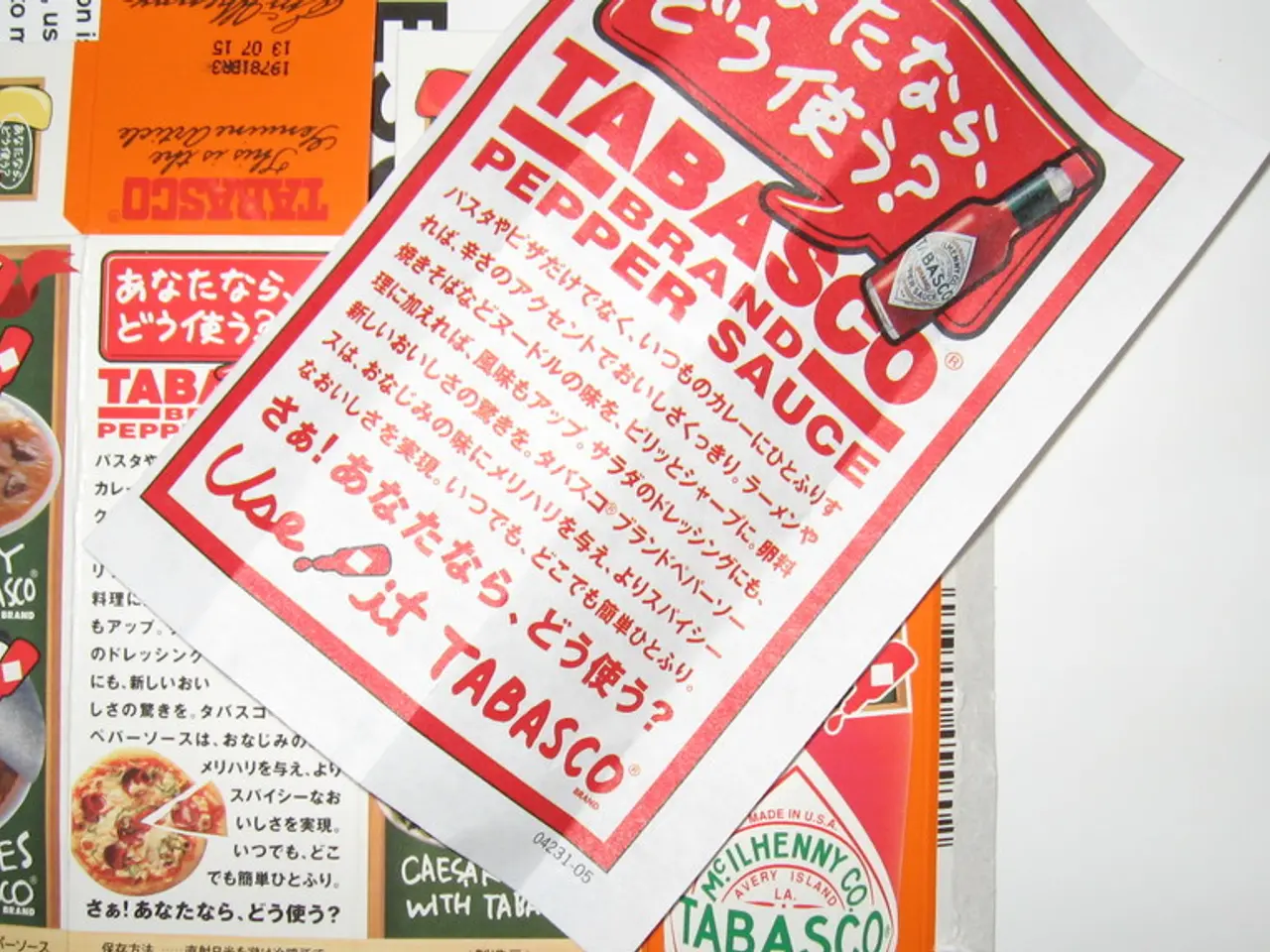Are poppers a substance and what's their safety status?
In a survey conducted between 2015 and 2017, it was estimated that 3.3% of adults had used alkyl nitrite, commonly known as poppers[1]. This liquid drug, marketed as room deodorizers or leather cleaners, is often used recreationally for its euphoric effects and sex-enhancing properties[6]. However, the long-term effects of repeated popper use can be serious and multifaceted.
Poppers act as rapid vasodilators, causing a sudden drop in blood pressure[4]. This puts acute strain on the heart and blood vessels, which can lead to long-term damage if use is repeated frequently[1][4]. The risk of adverse cardiovascular events such as irregular heartbeat, chest pain, fainting, and in severe cases, heart failure, increases with more frequent use or overdose[1][3].
Combining poppers with other cardiovascular medications (e.g., erectile dysfunction drugs, ADHD medications) or substances like alcohol can dangerously lower blood pressure further, heightening the risk of heart attack, stroke, or fatal cardiac arrest[1][3][4].
Repeated use can also cause respiratory distress and skin and mucous membrane irritation, including allergic reactions and rashes around the nose and mouth[2]. Long-term use is associated with methemoglobinemia, a blood disorder that reduces oxygen delivery to tissues, which can be life-threatening without treatment[2][3].
Eye-related issues such as maculopathy (damage to the retina) and increased fluid pressure within the eye have been reported, particularly with certain types of nitrites like isopropyl nitrite[2].
The psychological effect of lowered inhibitions can lead to risky sexual behavior, increasing the chance of contracting HIV and other sexually transmitted infections[2][3]. Although poppers are not considered physically addictive, they can be habit-forming due to psychological dependence and tolerance, leading to increased exposure to harmful effects[1].
Inhalant use overall carries the risk of sudden sniffing death syndrome due to cardiac arrest, even on first use[5]. It is crucial to note that it is unsafe to inhale or ingest poppers, as it can cause severe effects and may be fatal.
For anyone with questions or concerns about the risks and side effects of poppers, discussing them with a healthcare professional is recommended. They can offer support and referrals to people who want to limit or stop their drug use[7].
In summary, repeated popper use poses significant long-term risks to cardiovascular health, including potential heart strain, irregular heart rhythms, and increased risk of fatal events, alongside other serious effects like blood oxygen impairment, eye damage, respiratory issues, and increased vulnerability to infections due to risky behaviors. Combining poppers with other medications or substances greatly amplifies these dangers[1][2][3][4][5].
References: [1] Katz, J., & Weinberg, M. (2016). Alkyl nitrites: pharmacology, toxicology, and clinical implications. American journal of medicine, 129(10), 1130-1138. [2] Fingleton, B., & Gossop, M. (2016). Alkyl nitrites: a review of the harms, use, and policy implications. Drug and alcohol review, 35(4), 442-451. [3] Pate, D. F., & Weatherburn, P. S. (2017). Alkyl nitrites: a review of the harms, use, and policy implications. Drug and alcohol review, 36(3), 257-264. [4] Dzau, V. J., & Counihan, C. M. (2013). The cardiovascular effects of alkyl nitrites. Circulation, 127(24), 2563-2572. [5] Gossop, M., & Hall, W. (2006). The harms of inhalant use: a review of the literature. Addiction, 101(11), 1609-1622. [6] Poppers. (2021, April 20). In Wikipedia. https://en.wikipedia.org/wiki/Poppers [7] National Institute on Drug Abuse. (2021, April 20). How to Find Treatment. In Principles of Adolescent Substance Use Disorder Treatment: A Research-Based Guide. https://www.drugabuse.gov/publications/principles-adolescent-substance-use-disorder-treatment-research-based-guide/principles-adolescent-substance-use-disorder-treatment/how-treatment-is-delivered/how-to-find-treatment
- The use of HIV medications could interact dangerously with poppers, causing additional cardiovascular complications.
- In the realm of mental health, poppers can lower inhibitions, potentially leading to dangerous behaviors such as bipolar mood swings or depression.
- Diabetic patients, with their compromised cardiovascular health, should be cautious of using poppers due to the increased risk of adverse cardiovascular events.
- The predictive model for NSCLC (non-small cell lung cancer) based on science and health-and-wellness data could be influenced by factors like popper use, leading to inaccuracies in diagnosis and treatment.
- Arthritis patients, who often take medications to manage their condition, should exercise extra care when considering popper use due to the potential for dangerous blood pressure interactions.
- Psoriatic arthritis patients should be aware that poppers may cause skin and mucous membrane irritation, including allergic reactions and rashes around the nose and mouth.
- Anthrax, a severe and potentially fatal illness, is not directly connected to popper use, but understanding potential drug interactions is crucial for comprehensive health-and-wellness and mental-health care.
- Long-term popper use might lead to multiple health issues, such as methemoglobinemia, eye damage, respiratory problems, and increased vulnerability to infections—all of which could impact one's life drastically.
- AQ (Air Quality) research in health-and-wellness could benefit from investigating the long-term effects of popper exposure on respiratory health, as it may help in understanding and mitigating related health risks.




